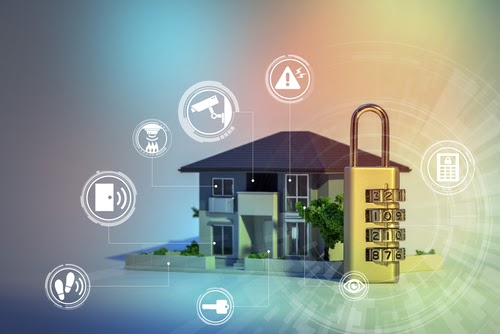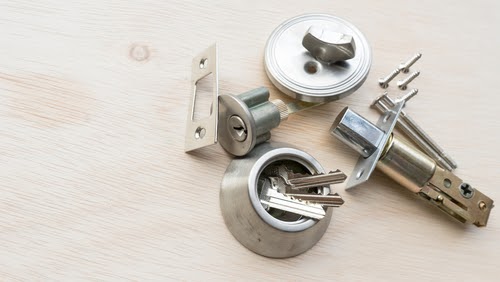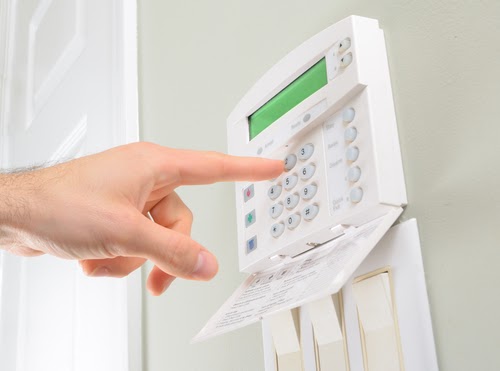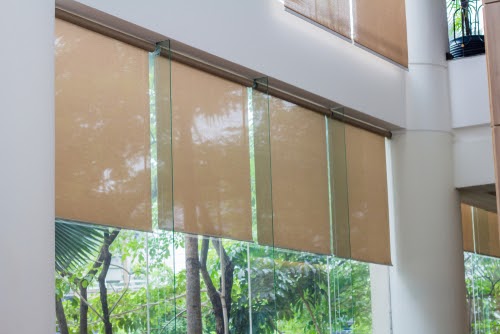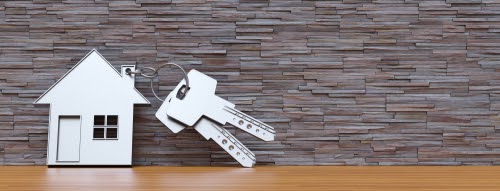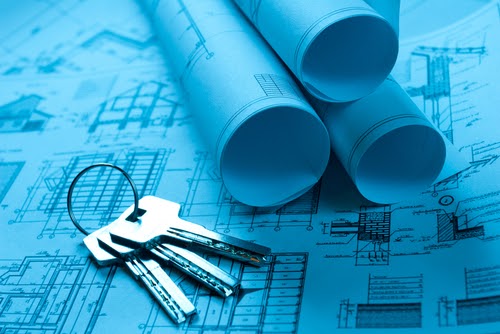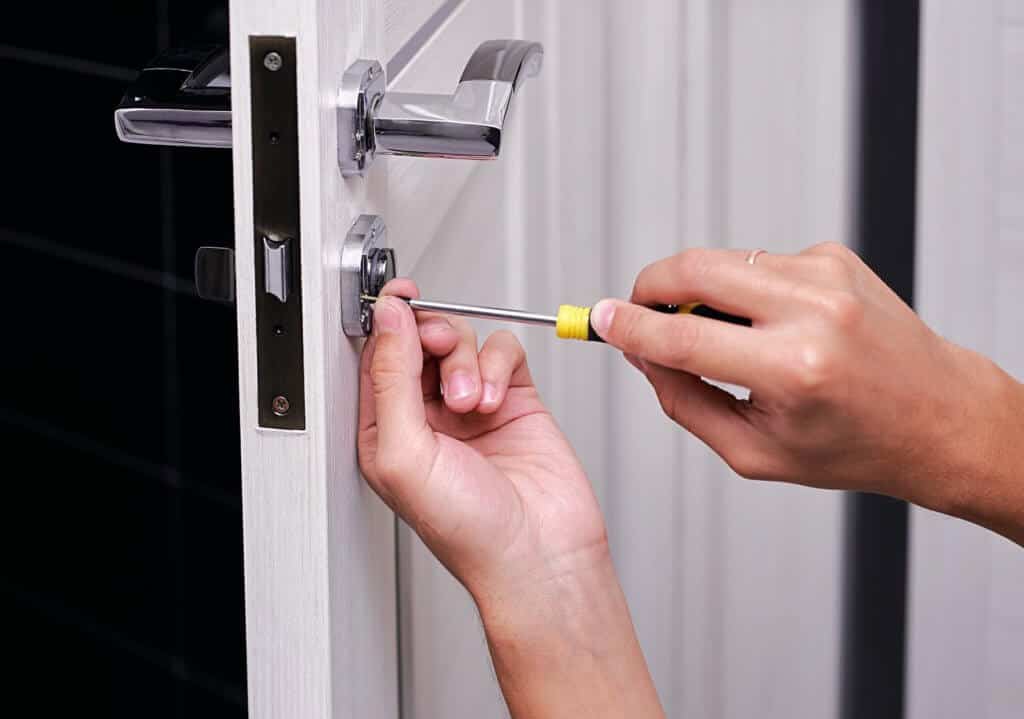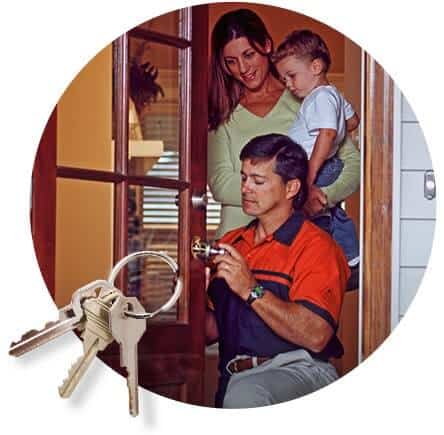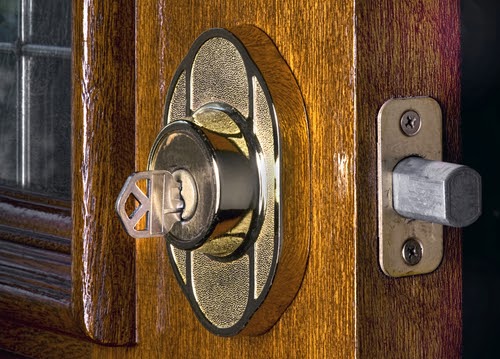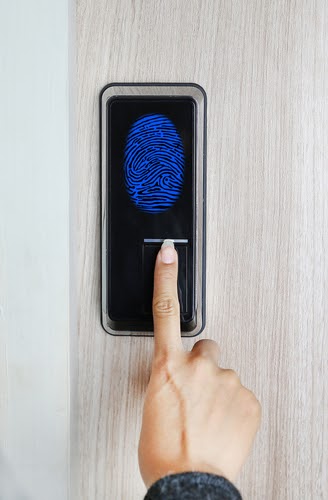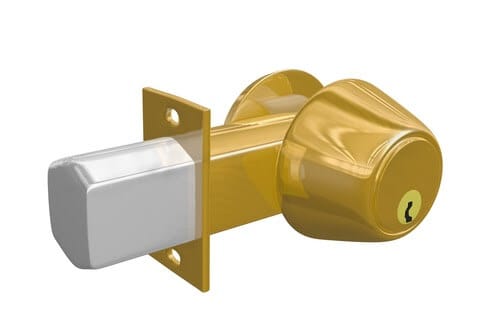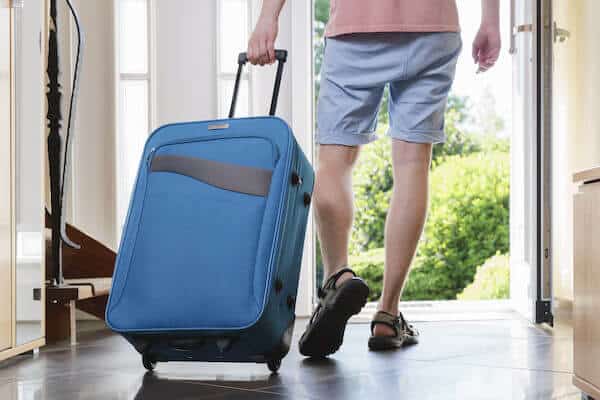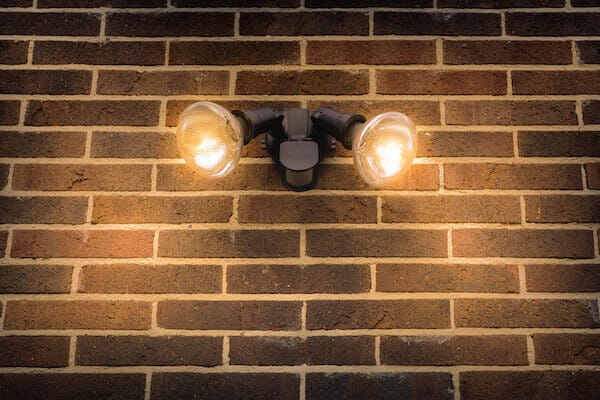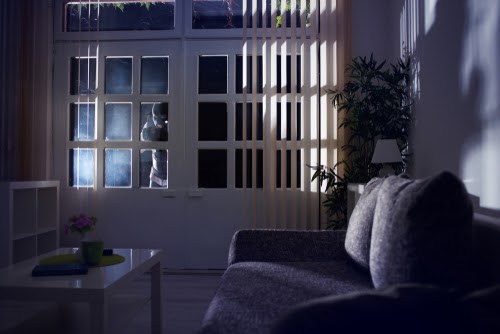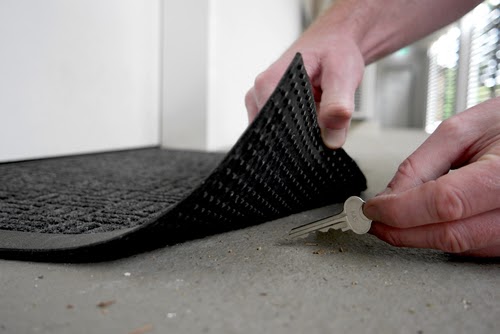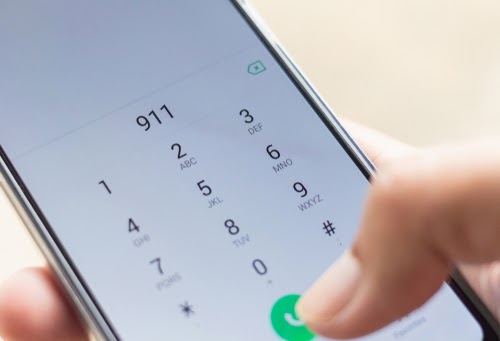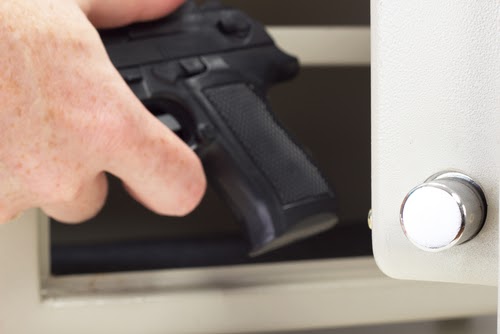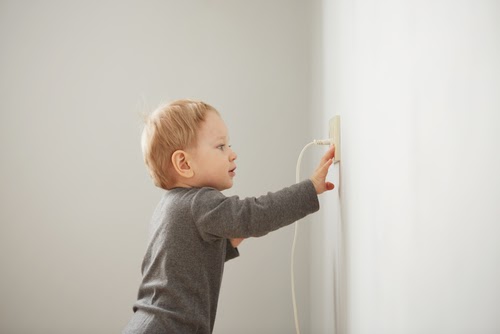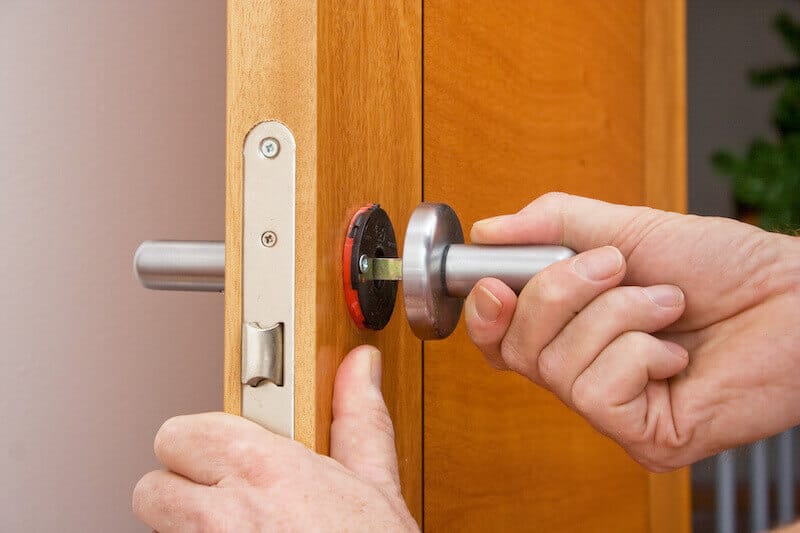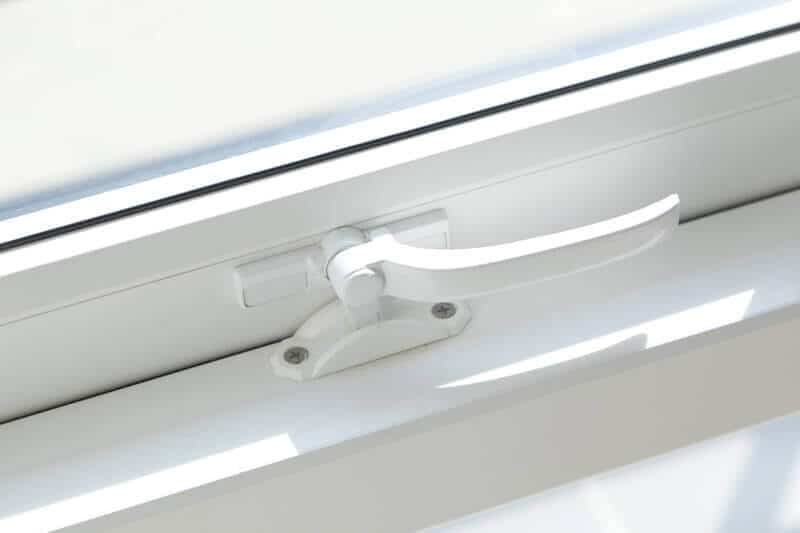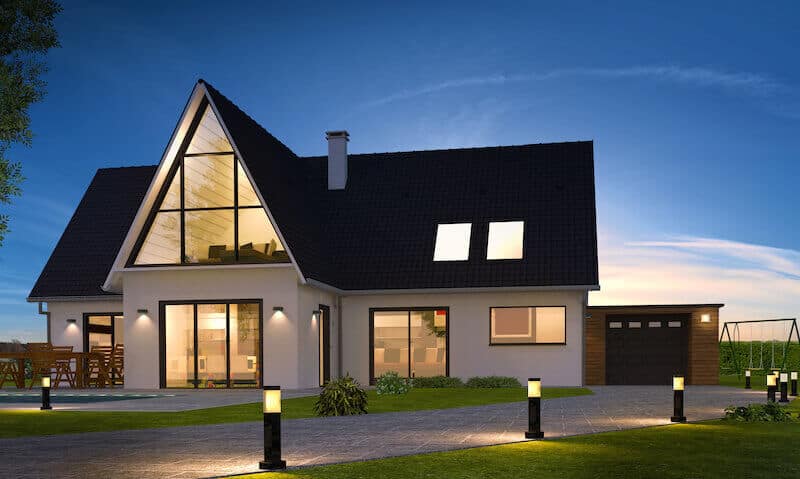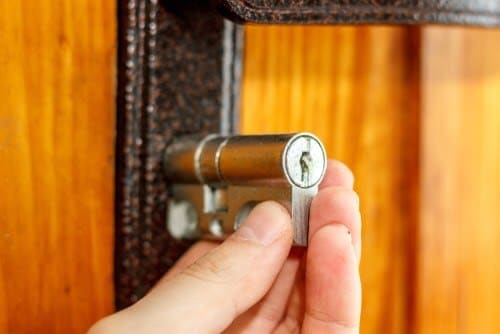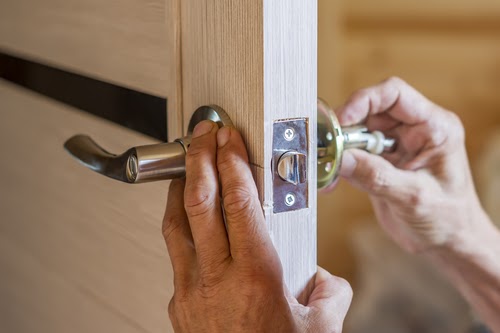Lock Bumping and How to Prevent It
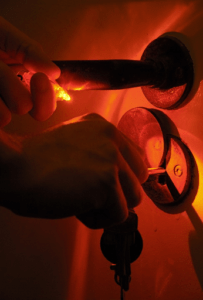
After locking up, most of us feel certain our possessions — and our families — are safe behind guarded doors. We think that, in the unlikely event of our home becoming a target for burglars, the only way inside would be through kicking in a door or window. But only 35% of home invasions show signs of forced entry. How are they getting in? It’s not because they’re criminal masterminds: since 2002, lock bumping has become a popular technique used by burglars to bypass the most commonplace door locks. Read up on this method, and what you can do to prevent lock bumping.
What is lock bumping?
Put simply, lock bumping is when a bump key is used to align the pins in a common cylinder lock. From here, a small amount of pressure is applied on the key, effectively “bumping” it and causing the plug to slide open. Once a way for locksmiths to safely disassemble locks, this knowledge has since made its way into criminal circles, and is now one of the most popular lock picking techniques.
Though not all home locks are vulnerable to bumping, the majority are. Cylinder locks, which have the pin tumbler mechanism mentioned above, are standard in homes across the country. Unfortunately, because they’re so commonplace, criminals are able to easily take advantage of this simple and mass-produced locking mechanism
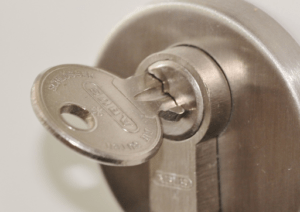
Should I Be Worried?
When in the wrong hands, bump keys are used to gain illegal entry to a residence — usually with the intention of burglary. While the possibility of your home falling victim to lock bumping may seem far-fetched, this method has been on the rise since 2002, and is so easy to execute a toddler could do it. Let’s look at the facts:
- Lock bump keys are extremely cheap ($3 on Amazon). This means anyone with an internet connection and a couple spare bucks can become a lock-picker.
- Lock bumping is incredibly easy to learn, requiring no special skills or strength to execute.
- On average, bumping a lock takes only 10 seconds, making it a quick and
- It’s a non-destructive lock-picking method. Since most insurance companies need to see some sign of forced entry to approve claims, this method is particularly worrisome for homeowners.
- About 90% of US homes have cylinder locks that can be bumped
This last statistic is concerning. As someone who doesn’t spend a lot of time thinking about locks and how they work, how can you tell if you have one of those cylinder locks mentioned earlier? You don’t need an expert’s help for this. If your door locks are relatively old, came with the house or apartment, and require only one key to operate, it’s a safe bet that you have a cylinder lock.
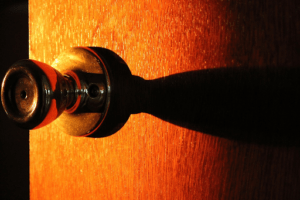
How to prevent lock bumping
The first step you can take to prevent lock-bumping is finding a method to safeguard your locks against this technique or taking security measures to make your home less appealing to thieves.
- High-security locks: The best locks are the ones that can’t be picked. At the moment, there are several bump-resistant locks on the market, most of which come with a UL 437 rating and unique markings near the keyhole. (“UL” stands for “Underwriter Laboratories” which is the most commonly used rating system for mechanical locks in the US). These locks don’t use the tumbler-pin mechanism of cylinder locks, instead using tough-to-pick safety features that protect against picking or excessive force. They’re also patent protected, meaning only one company manufacturers the key and issues it to locksmiths or security companies. When choosing a lock for your home, be sure to ask your locksmith about high-security lock options.
- Anti-bump lock guards: If you’re on a budget, purchasing a bump-resistant guard may be the way to go. These devices are available on the internet or in hardware stores, and can be easily installed on your door. The most common bump-proof device is the thumb-turn guard, which latches on to the indoor thumb-turn part of your deadbolt, holding the lock firmly in place. However, there are disadvantages to this method since it prevents the door from unlocking on the outside.
- Keyless deadbolt locks: This is a popular method for homeowners looking for added security. Similar to the last method, keyless deadbolt locks can only be turned from the inside, making for less-convenient entry or exit, but they do have the added benefit of being entirely pick-proof from the outside.
- Home security system: Though lock-picking is a swift and quiet process, burglars will be less-likely to target your home if your yard is well-lit and clear of any convenient hiding spots. The addition of home security systems and or security cameras can be a great defense as well, deterring potential thieves and alerting you to any outside threats.
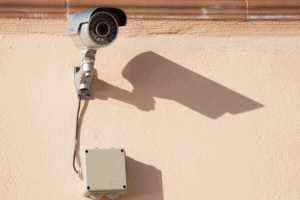
Get a locksmith’s advice
If you’re unsure of how secure your home really is, consult one of the experts at Pop-A-Lock. We’ll offer commercial security audits where we’ll sweep your property in search of potential security risks and provide advice on how to fortify your home. Just give us a call or check out our website for more information. We’re always happy to help a home in need.

